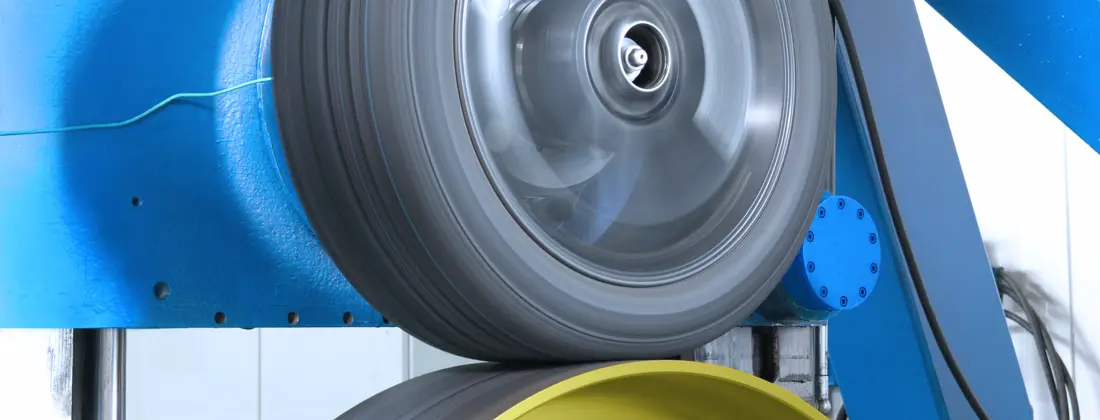FMVSS 138 Tyre Pressure Monitoring System Accuracy Testing
The Federal Motor Vehicle Safety Standards (FMVSS) 138 mandates that all passenger vehicles manufactured after September 1, 2007, must be equipped with a Tyre Pressure Monitoring System (TPMS). The purpose of this regulation is to ensure the safety of drivers and passengers by preventing vehicle accidents caused by underinflated tyres. This service provides comprehensive testing for the accuracy of TPMS in accordance with FMVSS 138 requirements.
FMVSS 138 requires that the system accurately indicate a warning light when tyre pressure is below the recommended inflation value by more than 25% or if three or more tyres are underinflated. This ensures that drivers are alerted to potential safety issues before they become critical. The testing process involves simulating real-world driving conditions and verifying the TPMS's ability to detect changes in tyre pressure accurately.
The testing procedure begins with the preparation of tyres, which must be clean and free from any damage or defects that could affect the test results. Once prepared, the tyres are inflated to the specified pressure level using a precision gauge. The system under test is then connected to the vehicle, and the initial readings are recorded. The vehicle is driven in controlled conditions to simulate normal driving scenarios, such as acceleration, braking, and cornering.
During these maneuvers, the TPMS is monitored for its ability to accurately detect changes in tyre pressure. If a change exceeds 25% of the recommended inflation value or if three tyres are indicated as underinflated, the system must trigger an alert. The test is repeated multiple times to ensure consistent results across different driving conditions and tyre pressures.
The data collected during these tests is analyzed using statistical methods to determine the accuracy of the TPMS. This analysis includes calculating the mean error, standard deviation, and percentage of compliance with FMVSS 138 requirements. Any discrepancies are documented and addressed by recalibrating or adjusting the system as necessary.
The testing process also involves verifying the durability and reliability of the TPMS under various environmental conditions. This includes exposure to extreme temperatures, humidity, and road conditions that can affect tyre performance. The tests ensure that the TPMS continues to function accurately even in challenging environments.
- Real-world driving simulations
- Pressure changes exceeding 25% of recommended value
- Alert triggering for underinflated tyres
- Data analysis using statistical methods
- Durability and reliability verification
The results of the FMVSS 138 testing are reported in a comprehensive document that includes all test data, analysis, and recommendations for system adjustments. This report is essential for quality managers, compliance officers, R&D engineers, and procurement personnel to ensure that vehicles meet regulatory requirements and maintain optimal safety standards.
Eurolab Advantages
Eurolab offers a range of advantages when it comes to FMVSS 138 Tyre Pressure Monitoring System Accuracy Testing. Our state-of-the-art facilities and experienced professionals ensure that the testing process is conducted with precision and accuracy.
- Accurate and reliable testing: Our team uses advanced instrumentation and techniques to ensure that all tests are conducted under controlled conditions.
- Dedicated resources: We have a dedicated team of engineers and technicians who specialize in FMVSS 138 compliance.
- Comprehensive reporting: Our reports include detailed data analysis, recommendations for system adjustments, and compliance verification.
- Expertise in multiple sectors: Eurolab has extensive experience in the automotive sector and can provide guidance on regulatory requirements across various vehicle types.
By choosing Eurolab for FMVSS 138 Tyre Pressure Monitoring System Accuracy Testing, you can be confident that your vehicles meet all safety standards. Our commitment to quality and reliability ensures that you have peace of mind when it comes to the performance and safety of your products.
Why Choose This Test
- To ensure compliance with FMVSS 138 regulations
- To enhance vehicle safety by preventing accidents caused by underinflated tyres
- To improve the reliability and durability of TPMS systems
- To maintain optimal tyre performance in various driving conditions
- To provide detailed reports that can be used for quality assurance purposes
- To ensure consistent results across different vehicle models and production batches
- To facilitate compliance with international standards such as ISO 9001 and IATF 16949
- To reduce the risk of recalls and legal liabilities associated with non-compliance
By choosing this test, you can ensure that your vehicles meet all safety regulations and provide a safer driving experience for consumers. The FMVSS 138 Tyre Pressure Monitoring System Accuracy Testing is essential for maintaining compliance and ensuring the highest level of vehicle safety.
Quality and Reliability Assurance
The FMVSS 138 Tyre Pressure Monitoring System Accuracy Testing ensures that all vehicles meet the strictest quality and reliability standards. This testing process is crucial in maintaining consumer confidence and ensuring that vehicles are safe on the road.
At Eurolab, we use advanced instrumentation and techniques to conduct comprehensive tests under controlled conditions. Our team of experts has extensive experience in FMVSS 138 compliance and can provide guidance on regulatory requirements across various vehicle types.
The testing process involves simulating real-world driving scenarios such as acceleration, braking, and cornering. During these maneuvers, the TPMS is monitored for its ability to accurately detect changes in tyre pressure. The data collected during these tests is analyzed using statistical methods to determine the accuracy of the TPMS. Any discrepancies are documented and addressed by recalibrating or adjusting the system as necessary.
The results of the FMVSS 138 testing are reported in a comprehensive document that includes all test data, analysis, and recommendations for system adjustments. This report is essential for quality managers, compliance officers, R&D engineers, and procurement personnel to ensure that vehicles meet regulatory requirements and maintain optimal safety standards.
By choosing Eurolab for FMVSS 138 Tyre Pressure Monitoring System Accuracy Testing, you can be confident that your vehicles meet all safety standards. Our commitment to quality and reliability ensures that you have peace of mind when it comes to the performance and safety of your products.





